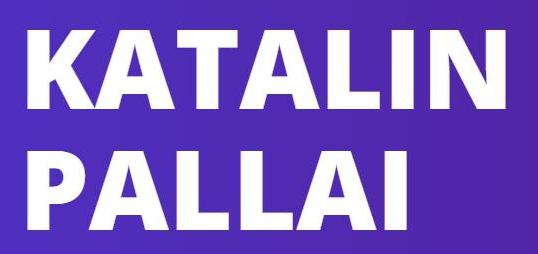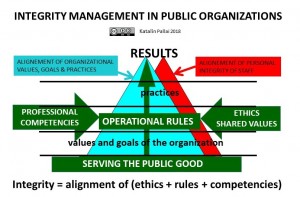 As public integrity and integrity management are relatively new terms I add a short explanation. Public integrity management became important as means for corruption prevention and strengthening trust in government. However, its importance is wider. It is a pillar of good governance. Democratic public integrity means that the political system and public administration effectively uses the powers and resources entrusted to them according to the democratic values and principles for the implementation of the officially accepted purposes and justified public interest. Public integrity management is a complex challenge because, for achieving a system of institutions that operates with integrity, both the integrity of the operating system of organizations and the ethics and integrity of public servants needs to be assured. The main tenet of public integrity approach is that the rules and the values of society and organizations need to be developed by a complex development process that apply rule- and value-based instruments in balance. In order to curb corruption leaders and integrity professionals need not only technical mastery in applying regulatory instruments but also need competence for initiating and leading collective processes of change.
As public integrity and integrity management are relatively new terms I add a short explanation. Public integrity management became important as means for corruption prevention and strengthening trust in government. However, its importance is wider. It is a pillar of good governance. Democratic public integrity means that the political system and public administration effectively uses the powers and resources entrusted to them according to the democratic values and principles for the implementation of the officially accepted purposes and justified public interest. Public integrity management is a complex challenge because, for achieving a system of institutions that operates with integrity, both the integrity of the operating system of organizations and the ethics and integrity of public servants needs to be assured. The main tenet of public integrity approach is that the rules and the values of society and organizations need to be developed by a complex development process that apply rule- and value-based instruments in balance. In order to curb corruption leaders and integrity professionals need not only technical mastery in applying regulatory instruments but also need competence for initiating and leading collective processes of change.
Design of a Public Integrity and Ethics module for the Education for Justice Initiative of UNODC, 2018
The Education for Justice initiative is aimed at building a culture of lawfulness among children and youth through the provision of age-appropriate educational materials on topics related to criminal justice, crime prevention and the rule of law, and the integration of those materials into the curricula of all education levels. The program component I work for is developing modules and associated pedagogical tools for University professors who want to teach Integrity and Ethics courses.
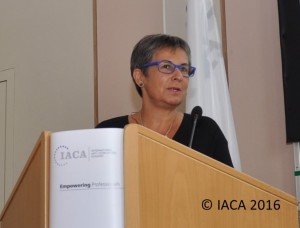 Guest Lecturer at IACA (International Anti-corruption Academy), since 2016
Guest Lecturer at IACA (International Anti-corruption Academy), since 2016
I am often invited to the International Academy for Anti-corruption to lecture for groups composed of public and private sector officials on Public Ethics and Integrity and on Organizational Integrity Management at the academy. In my lectures, I present corruption and corruption prevention concepts, methods to work on ethical dilemmas, ethics and integrity management strategies and instruments. I use case studies and my experience to connect the concepts to field practices.
Leading a collaborative process of complex curriculum and faculty development. 2014-2017
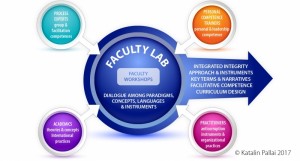 I was commissioned to design a new curriculum for a one year long post graduate program for integrity advisers. I designed a curriculum development process that was different from the usual academic process in three dimensions. The first was, that integrity advising was a new profession in the Hungarian Public sector. Therefore, faculty could not transmit established knowledge about an established profession but had to create a new practice for a new professional field. Consequently, the curruculum development process had to design new method for a new profession and it teaching methodology in a parallel manner. I organized a collaborative, transdisciplinary curriculum development process. I involved three groups of professionals : academics, anti-corruption practitioners and professionals from the fields of organizational development and dialogic processes. I worked with the faculty through a series of faculty workshops with the aim (1) to exploit the different perspectives, knowledge and experience of faculty to design an adequate integrity advising method for the Hungarian public sector (2) to create synergy among the various subjects and an integrated the curriculum, (3) to create shared norms and objectives not only for the delivery of content but also for the ethical stance faculty transmits to students, and (4) to support faculty through their own experiences of our dialogue to initiate similar processes in their teaching.
I was commissioned to design a new curriculum for a one year long post graduate program for integrity advisers. I designed a curriculum development process that was different from the usual academic process in three dimensions. The first was, that integrity advising was a new profession in the Hungarian Public sector. Therefore, faculty could not transmit established knowledge about an established profession but had to create a new practice for a new professional field. Consequently, the curruculum development process had to design new method for a new profession and it teaching methodology in a parallel manner. I organized a collaborative, transdisciplinary curriculum development process. I involved three groups of professionals : academics, anti-corruption practitioners and professionals from the fields of organizational development and dialogic processes. I worked with the faculty through a series of faculty workshops with the aim (1) to exploit the different perspectives, knowledge and experience of faculty to design an adequate integrity advising method for the Hungarian public sector (2) to create synergy among the various subjects and an integrated the curriculum, (3) to create shared norms and objectives not only for the delivery of content but also for the ethical stance faculty transmits to students, and (4) to support faculty through their own experiences of our dialogue to initiate similar processes in their teaching.
![oktmuhely_2017_oct_jav01[1]](https://cv.pallai.hu/wp-content/uploads/2014/10/oktmuhely_2017_oct_jav011-300x160.jpg) The process was three years long. It achieved team spirit and good faculty relations, an integrited teaching methodology and designed some new practices for integrity advising. Pallai paper WCCI integrity pedagogy Pallai EGPA 2017 IX WG
The process was three years long. It achieved team spirit and good faculty relations, an integrited teaching methodology and designed some new practices for integrity advising. Pallai paper WCCI integrity pedagogy Pallai EGPA 2017 IX WG
Design of the Public ethics and Integrity module for the Leadership Academy Program of the Council of Europe, 2017
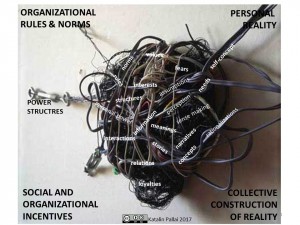 The program offers an approximately nine months leadership Education for local government leaders. The program we have developed between 2011 and 2014 was redesigned in 2017. As part of the redesign I have developed a one day long module for local leaders on public ethics and integrity management. The module offers a clear conceptual frame for analyzing and discussing ethical issues and dilemmas and for reflecting on strategies for enhancing integrity of the operation of the local government and for curbing corruption. It is designed according to the principles of experiential adult education. It is highly interactive, it encourages personal and group reflections and revision of concepts about corruption, it offers practical methods to develop responses to ethical dilemmas situations.
The program offers an approximately nine months leadership Education for local government leaders. The program we have developed between 2011 and 2014 was redesigned in 2017. As part of the redesign I have developed a one day long module for local leaders on public ethics and integrity management. The module offers a clear conceptual frame for analyzing and discussing ethical issues and dilemmas and for reflecting on strategies for enhancing integrity of the operation of the local government and for curbing corruption. It is designed according to the principles of experiential adult education. It is highly interactive, it encourages personal and group reflections and revision of concepts about corruption, it offers practical methods to develop responses to ethical dilemmas situations.
Concept for the re-design of the post-graduate education program for integrity advisers, 2014
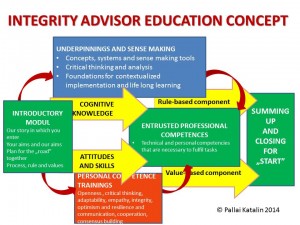 This is a one year long post-graduate education program offered by the National University for Public Service open for experienced civil servants. The certificate it gives is the condition for fulfilling the integrity advisor position in public institutions. When I became the program director I was commissioned with the redesign of the formerly traditional academic education program to a modern competency based program. The goal of my new approach is to develop both the professional competences in the specific roles the advisors need to play in public organizations, and to foster the ethos needed for fulfilling these roles in the public domain.
This is a one year long post-graduate education program offered by the National University for Public Service open for experienced civil servants. The certificate it gives is the condition for fulfilling the integrity advisor position in public institutions. When I became the program director I was commissioned with the redesign of the formerly traditional academic education program to a modern competency based program. The goal of my new approach is to develop both the professional competences in the specific roles the advisors need to play in public organizations, and to foster the ethos needed for fulfilling these roles in the public domain.
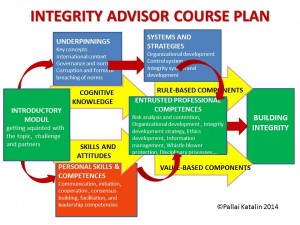 Nine professional competency subjects are in the focus of the curriculum, that cover the roles assigned to integrity advisors. Academic knowledge is connected to these professional competencies and offer conceptual foundation and underpinning to difficult professional decisions. Personal competency development trainings complete these subjects. Beyond the new approach and structure of subjects two methodological innovations are: the wide use of experiential methods in order to develop reflective and argumentative skills of the students, and the deliberate norm socialization process during the training that is aimed to offer models for the norm building that the advisors have to perform in their organizations during their practice. Pallai paper WCCI integrity pedagogy collective-action-conference-2016-katalin-pallai
Nine professional competency subjects are in the focus of the curriculum, that cover the roles assigned to integrity advisors. Academic knowledge is connected to these professional competencies and offer conceptual foundation and underpinning to difficult professional decisions. Personal competency development trainings complete these subjects. Beyond the new approach and structure of subjects two methodological innovations are: the wide use of experiential methods in order to develop reflective and argumentative skills of the students, and the deliberate norm socialization process during the training that is aimed to offer models for the norm building that the advisors have to perform in their organizations during their practice. Pallai paper WCCI integrity pedagogy collective-action-conference-2016-katalin-pallai
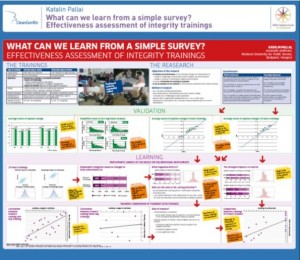 Effectiveness evaluation of public integrity trainings, 2013-15
Effectiveness evaluation of public integrity trainings, 2013-15
In 2013-14 in Hungary I conducted an effectiveness assessment survey a large public ethics and integrity training program that examined the knowledge and attitude change of 7,362 participants with the use of pre- and post-training questionnaires. The aim of the survey was to validate the training method and curriculum, collect information for the training providers on how to improve effectiveness of the trainings, and to demonstrate that even with a simple method, applicable even with weak organizational capacities, information can be produced both for validation and for further development of the curriculum. The research proved that the trainings had statistically significant learning impacts on participants both on knowledge and attitude level. The results also indicated that the effectiveness survey brings different results regarding both the learning impact and the ranking of trainers than the widely used satisfaction and reaction surveys. OECD Integrity-Forum- Katalin-Pallai EGPA paperafter conference
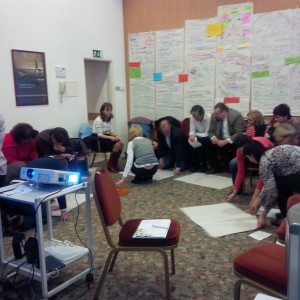
Design of Public Ethics and Integrity curricula for civil servants and public leaders, 2013-2014
In the frame of the life-long education program for civil servants I designed a one day long Public Ethics training methodology for staff members and a 2,5 days Integrity management curriculum for public sector leaders and trained the trainers for the trainings. Due to the good reputation of the previous integrity trainings presented during the earlier mentioned EU sponsored project, a large number enrolled already in the first months. According the forecast together with the accomplishments of the earlier trainings I designed by the end of 2014 15% of the Hungarian civil service will be trained by my methodologies. katalin-pallai_designconsideration-results-of-a-large-integrity-training-program-for-civilservants-in-hungary.original
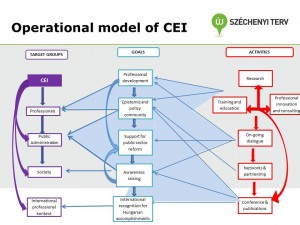 Building up the Center for Excellence in Integrity at the National University for Public Service, since 2013-2015
Building up the Center for Excellence in Integrity at the National University for Public Service, since 2013-2015
The Center for Excellence in Integrity (CEI) was established to secure sustainability for the results obtained during the implementation of the Corruption Prevention project mentioned below. The mission of CEI is to foster the implementation of public integrity in Hungary by gathering, generating and disseminating knowledge and innovative methods for corruption prevention and integrity management, and by taking an active part in advancing the case for public integrity. CEI’s activities include research, policy initiatives and knowledge sharing among professionals and to the wider public. CEI’s responsibility is also the development of integrity curriculum for the National University for Public Service and its quality assurance. My role has been to launch the operation of the Center, identify the role it should play, design a strategy for its sustainable functioning and lead its operation. Center for Excellence in Integrity
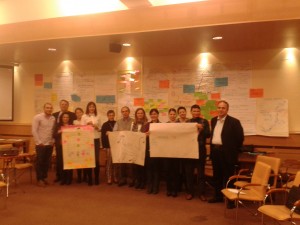 International Peer Review of the Integrity management traininng for public officials, 2013
International Peer Review of the Integrity management traininng for public officials, 2013
On the basis of my Hungarian integrity management training I developed a methodology for international audience. I presented the methodology in English for a group of anticorruption professionals from South East Europe and Turkey in front of a high level international peer review team. Both the peer review team and the EU Anticorruption Report, 2014 assessed the methodology as valuable and innovative. Some peer review reports can be viewed below through the links.
EllenGPeerReviewTraining10-12Dec13 short
Anticorruption and integrity courses at the National University for Public Service, Hungary, since 2013
On the basis of the methodology I had developed for civil servants I also developed a course on integrity management for MA level university education. From 2015 the course is part of the obligatory curriculum at the National University of Public Service and introduced on other Hungarian universities as well. I also teach an adopted version of the course and present the key ideas in the frame of the subject on Good Governance in the international ACADIPUS program of the university for students arriving from different continents and taking part in international MA or PhD programs.
